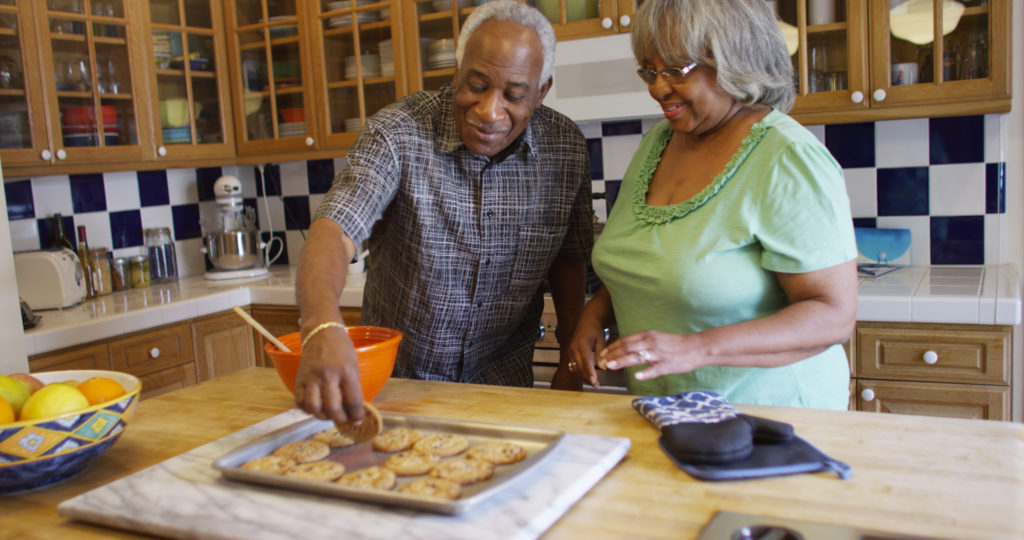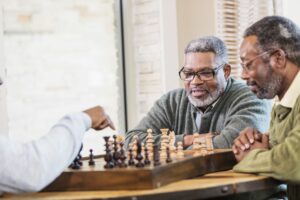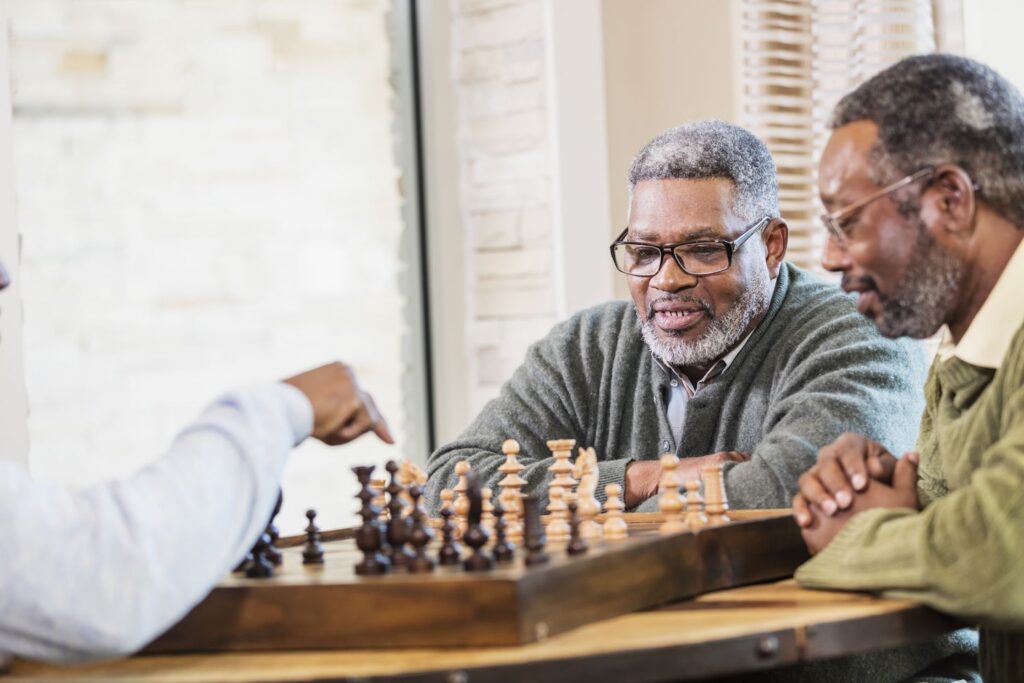Between the people in masks and costumes, the ringing doorbells, Halloween decorations, and bowls of candy, and depending on the stage of disease progression of your loved one with Alzheimer’s disease or another form of dementia, the anticipation of Halloween could leave you wondering if you should celebrate at all. Finding moments of fun and engagement are important for those with dementia, so before you “turn off the light” consider some safe ways to enjoy what might have once been a loved one’s favorite holiday and a way for you to help elicit fond memories of the past.
Before the planned holiday celebrations, sit down with the person with dementia to discuss what will happen and depending on abilities, have him/her be involved with making some of the decisions around what activities will be enjoyed. Be realistic about your expectations for Halloween celebrations, especially if attending a party outside of the home. Also, be prepared to change your holiday plans in the moment if your loved one with dementia would enjoy a different activity that day or quiet time at home.
Halloween Decorating for Dementia
Keep decorations at a minimum around the house and avoid those with flashing lights, loud noises, or those that are too realistic as to cause confusion. People with dementia may already suffer from anxiety, disorientation, and other symptoms that can be exacerbated if their surroundings are altered significantly.

The flickering flames of candles or the glow from a jack-o-lantern combined with poorly lit rooms can also be a safety hazard for those with Alzheimer’s disease or other forms of dementia. The shadows cast by the poor lighting may also induce anxiety or cause hallucinations.
Trick or Treating and Dementia
If seeing kids in costumes or the constant ringing of the doorbell would be too disorientating for your loved one with dementia because of the stage of his/her disease progression, consider turning off the light or participating in a different way. If your loved one would still like to give out candy, leave the front door light on, with a bowl of treats left out and labeled “Please take one,” or similar. Either way, your loved one with dementia should not be left alone to pass out candy as he/she could be more vulnerable to violation.
Candy may be another source of risk for your loved one with dementia, especially if he/she must limit sugar intake or is at risk of choking. Never leave out candy or other sweets if these are risks you must consider as the caregiver.
Dementia-Safe Television, Music, and Activities for Halloween
What your loved one with dementia sees on television can be interpreted as reality. If your loved one likes to channel surf, due to the abundance of scary movies and Halloween-centered programming shown at this time of year, consider blocking certain channels or keep your loved one busy with other activities.
Soothing music or a selection of their favorite tunes can calm your loved one with dementia if they have increased anxiety or seem agitated by the activities going on around him/her. Music is also a great memory trigger and might be useful to induce positive thoughts, especially if there is trauma associated with this time of year.

Consider starting new holiday traditions that do not involve the more stressful parts of Halloween, such as baking a pumpkin pie or decorating cookies together. Looking through old photographs of Halloweens past, painting pumpkins (better to avoid sharp tools so skip the carving), or creating fall flower arrangements may also be enjoyable.
According to the National Institute on Aging, “an important part of being a dementia caregiver is being able to foresee potential challenges and plan ahead to avoid them.” You, family members, and your loved one with dementia can enjoy this upcoming Halloween with a little preparation and a lot of flexibility. Of course, if you are seasoned caregiver, you already know this!








